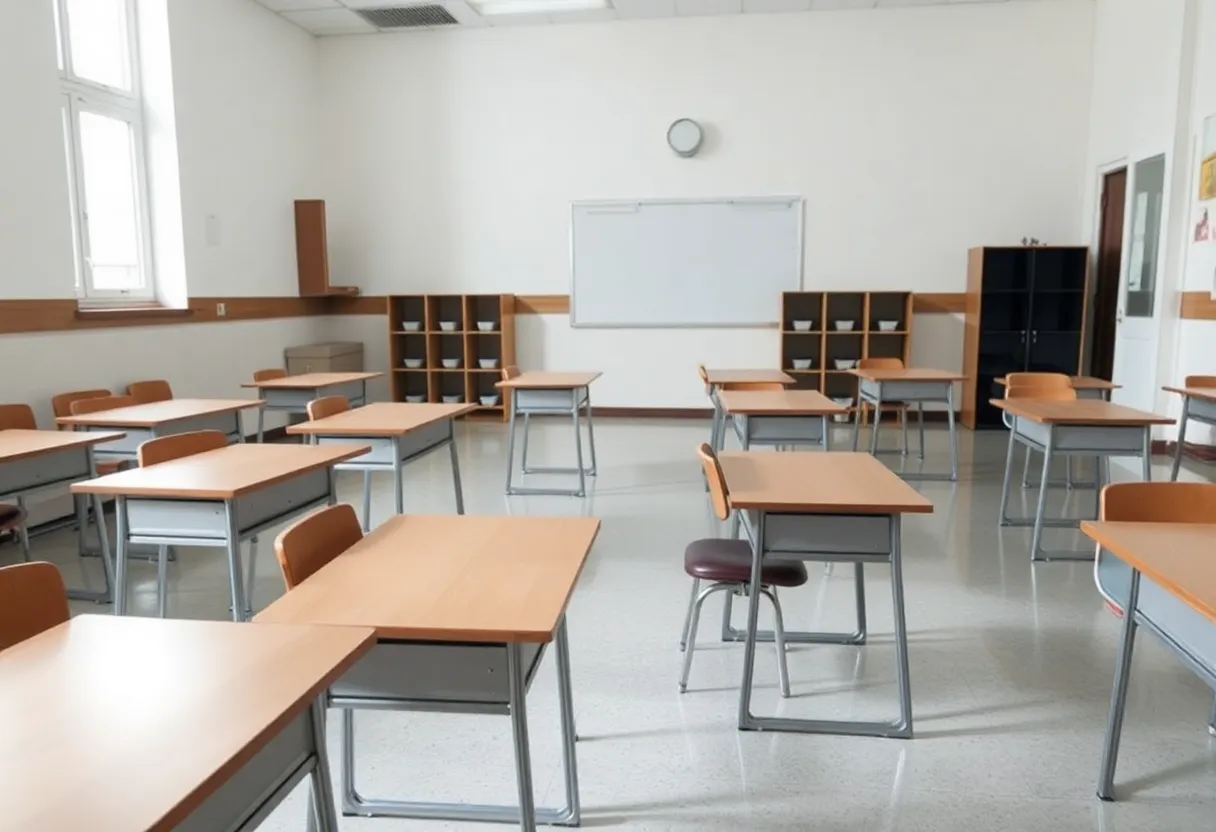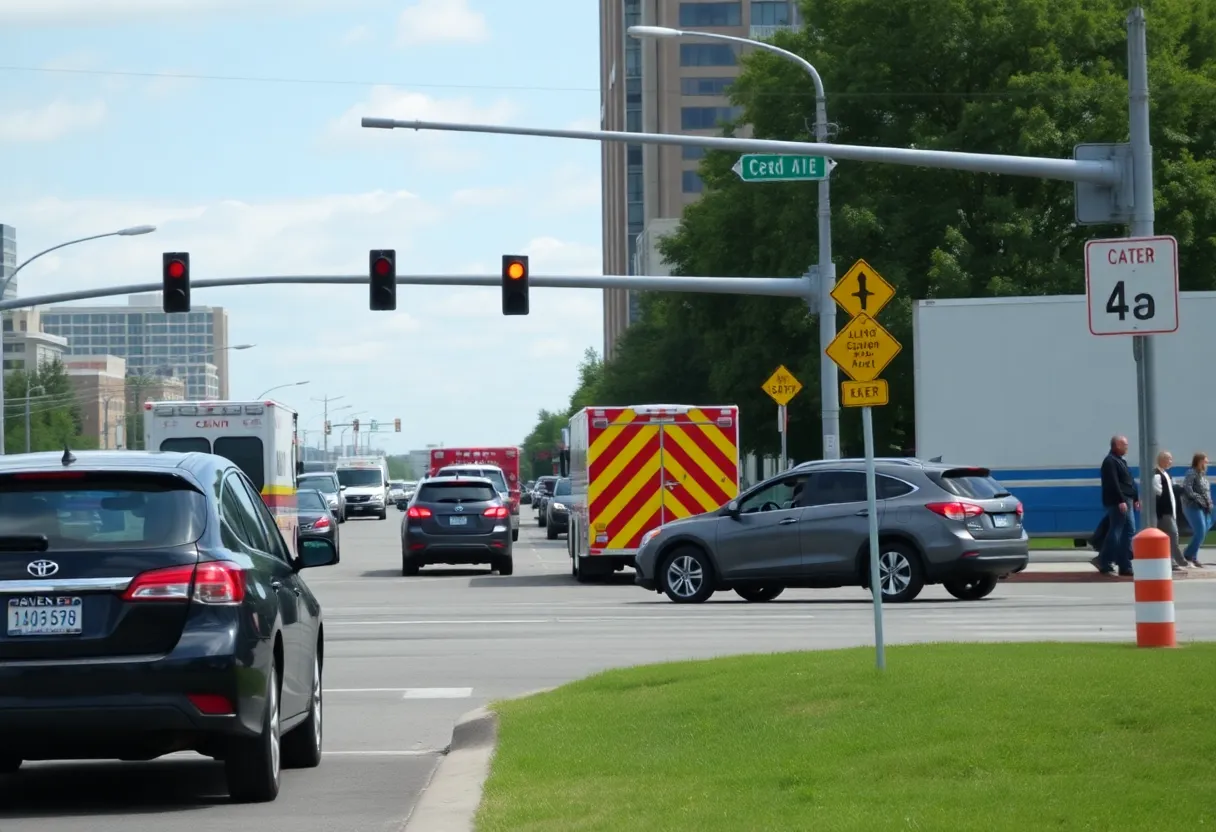News Summary
A study by Oxford University highlights the significant long-term economic costs of school closures during the COVID-19 pandemic. While effective in preventing deaths, closures led to an estimated £1.6 trillion in economic losses, with students losings over 0.35 school years of education. The research suggests alternative strategies like mask mandates and testing could yield better health outcomes with less economic disruption. Findings aim to inform future public health policies and improve decision-making in crises.
Oxford, England – New research by Oxford University’s Department of Statistics and the Leverhulme Center for Demographic Science reveals that school closures during the COVID-19 pandemic, while effective in preventing deaths, resulted in substantial long-term economic costs in the United States. This study emphasizes the trade-off between strict health measures and their economic ramifications, shedding light on how public health policy can be fine-tuned for future crises.
The analysis focused on numerous non-pharmaceutical interventions implemented across various states in 2020, long before the introduction of vaccines. Researchers collaborated with experts from the University of Washington to evaluate eleven different strategies for controlling COVID-19 transmission. The findings indicate that school closures were crucial in preventing approximately 77,200 COVID-19 deaths, reducing transmission rates of the virus by 8.2%.
However, the benefits of these closures are contrasted by the significant economic impact they brought. The research estimates that the long-term economic losses attributed to educational setbacks due to these closures could reach £1.6 trillion (about $2 trillion). Students experienced an average learning loss exceeding 0.35 school-years, with some regions maintaining school closures for nearly the entire duration of the 2020–2021 academic year. This educational disruption has lasting effects on students’ academic and economic prospects.
In contrast, the study found that cloth mask mandates were more efficient, yielding a 19% reduction in virus transmission at minimal economic costs. Additionally, implementing testing and contact tracing programs was evaluated as more effective relative to their expenses, suggesting that these strategies should be prioritized in future health emergencies.
The research highlighted by the lead author Nicholas Irons points to the unique challenges presented by the pandemic and reveals that the overall policy response was less than optimal. A combination of the various interventions that were assessed could have mitigated the economic fallout, reducing the pandemic’s net economic impact in the US from £3.7 trillion (roughly $4.6 trillion) to £1.5 trillion (approximately $1.9 trillion), while also saving over 100,000 additional lives.
Co-author Adrian Raftery stressed the necessity for improved national surveillance data in the US. He noted that better data practices, akin to those employed in the UK during the pandemic, could facilitate more informed decision-making in public health policy, thereby enhancing response effectiveness.
The insights garnered from this study aim to inform future pandemic management strategies and emphasize which interventions might yield better health outcomes without incurring excessive economic disruption. Recommended strategies include rapid deployment of testing, contact tracing efforts, mask mandates, enforced social distancing, and more targeted facility closures rather than blanket statewide school closures.
The research paper, titled “Optimal pandemic control strategies and cost-effectiveness of COVID-19 non-pharmaceutical interventions in the United States,” has been published in BMC Global and Public Health, contributing valuable evidence to the ongoing discussion surrounding public health policy in times of crisis.
Deeper Dive: News & Info About This Topic
HERE Resources
Hudson School District Faces Budget Challenges and Potential Closures
Waukesha School Board Considers Closure of Elementary Schools
Indianapolis Named Second Hottest Housing Market for 2025
Wilmington Area High Schools Receive Rankings
Decline in High School Students’ Math and Reading Performance
Evanston School Board Evaluates Potential Closures Amid Budget Issues
Hudson School Board to Discuss Potential School Closures
Evergreen Public Schools Continue to Face Strike Disruptions
Roxbury Elementary School Closed Over Asbestos Concerns
Sound Christian Academy Announces Sudden Closure
Additional Resources
- Medical Xpress
- Wikipedia: COVID-19 pandemic
- Mira News
- Google Search: impact of school closures COVID-19
- New York Post
- Google Scholar: COVID-19 school closures
- The Hill
- Encyclopedia Britannica: Education
- New York Magazine
- Google News: COVID-19 school closures effects
Author: STAFF HERE INDIANAPOLIS WRITER
The INDIANAPOLIS STAFF WRITER represents the experienced team at HEREIndianapolis.com, your go-to source for actionable local news and information in Indianapolis, Marion County, and beyond. Specializing in "news you can use," we cover essential topics like product reviews for personal and business needs, local business directories, politics, real estate trends, neighborhood insights, and state news affecting the area—with deep expertise drawn from years of dedicated reporting and strong community input, including local press releases and business updates. We deliver top reporting on high-value events such as the Indianapolis 500, Indy Jazz Fest, and the Indiana State Fair. Our coverage extends to key organizations like the Indy Chamber and Visit Indy, plus leading businesses in motorsports and healthcare that power the local economy such as Indianapolis Motor Speedway and IU Health. As part of the broader HERE network, we provide comprehensive, credible insights into Indiana's dynamic landscape.





